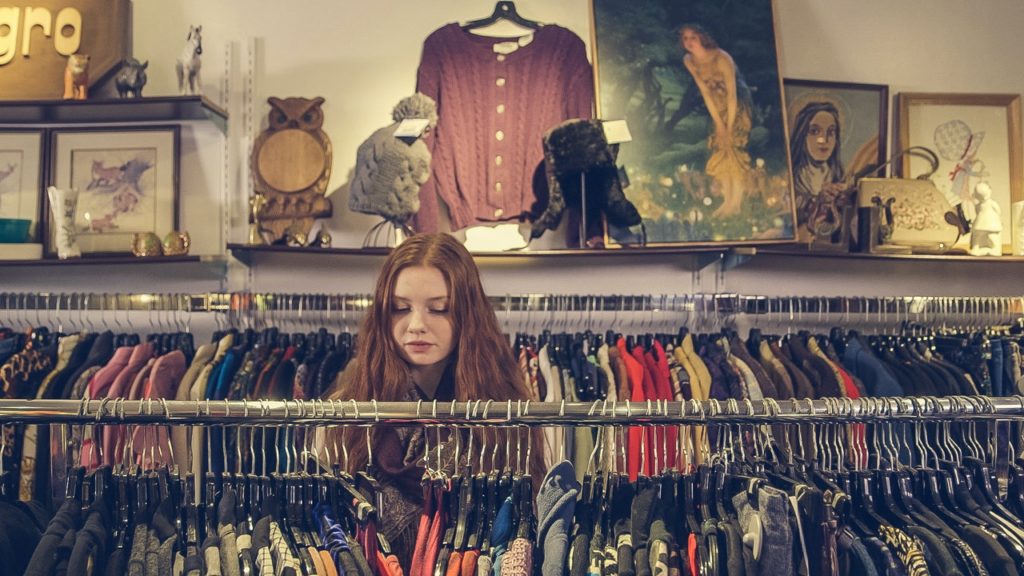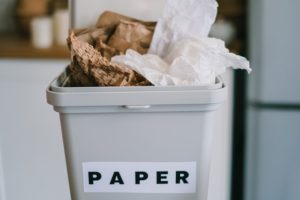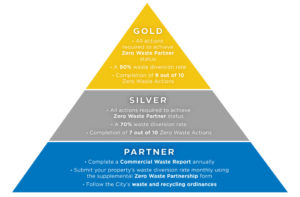
Source: cleanphl.org
The City of Philadelphia is tackling the challenge of zero waste head-on with bold policies, innovative programs, and plans to engage residents, businesses, and community groups in progressive waste management projects. Aiming for the ambitious goal of becoming 90% zero waste and litter-free by 2035, the city has taken it first steps towards both residential and commercial waste reduction through the implementation of numerous plans, platforms, and organizations to help make zero-waste Philly a reality.
At the core of Philadelphia’s zero-waste drive is Clean PHL, which is a platform for education and engagement around local waste reduction aimed at residents, businesses, and institutions. This is the cornerstone that enables Philadelphia to stitch together community and government initiatives to create impactful programs. For example, the City of Philadelphia Litter Index is a map-based survey carried out by trained city staff to highlight where litter is an issue. This data can then be used by the city to target hotspots as well as to drive community action. In addition, there is a notable crossover between city initiatives and commerce, as evidenced by Philadelphia Zero Waste Partnership Program that is helping to drive sustainable business practices across the city and the state of Pennsylvania.
Here, we look at Philly’s most promising zero-waste initiatives and the programs that are helping create a more sustainable city by promoting reduction, reuse, and recycling for all stakeholders.
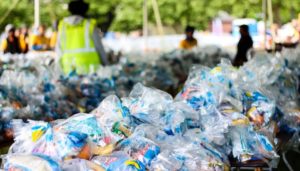
Source: phila.gov
Philadelphia Zero Waste and Litter Cabinet
In 2016, Philly Mayor James F. Kenney signed Executive Order 13-16 that laid out the foundations for the creation of the Zero Waste and Litter Cabinet — an inclusive and expansive task force that was asked to help push forward the Zero Waste and Litter Action (ZWL) Plan. The cabinet’s aim is to reduce the amount of waste entering landfills and conventional incinerators, as well as combatting litter, food waste, and addressing other waste issues to help make Philly a cleaner place to live and work.
The Philadelphia Zero Waste and Litter Cabinet is composed of city departments and agencies, City Council representatives, and community stakeholders. During its early meetings, it created a number of subcommittees to focus on five specific target areas. These included:
- Data
- Engagement and Communications
- Waste Reduction
- Enforcement/Cleaner Public Spaces
- Behavioral Science
In the wake of the COVID-19 pandemic, the Philadelphia Zero Waste and Litter Cabinet was folded into the city’s Office of Sustainability (OOS), which is the body tasked with implementing the broader Greenworks Philadelphia from which the ZWL came. The OOS has eight core visions that they are working towards:
- Accessible food and drinking water
- Healthy outdoor and indoor air
- Clean and efficient energy
- Climate-prepared and carbon-neutral communities
- Quality natural resources
- Accessible, affordable, and safe transportation
- Zero waste
- Engaged students, stewards, and workers
Additionally, Philadelphia’s Zero Waste Plan is integrating the following initiatives:
- Municipal Building Waste Audit Programs
- Zero Waste Partnership Programs
- Community Composting Network and other food waste diversion programs
- C40 Thriving Cities Initiative
- National Resources Defense Council (NRDC) Food Matters Regional Initiative
- Supporting Zero Waste policies, including a Plastic Bag Ban
The Zero Waste and Litter Cabinet combined with the OOS will no doubt continue to push towards the city’s ambitious 2035 goals. However, businesses and the Philadelphia government are also working together to create a cleaner, greener, and more sustainable city. This is evidenced in the Philadelphia Zero Waste Partnership Program that asks local businesses to collect data and report on their Zero Waste practices.
Philadelphia Zero Waste Partnership Program
The Philadelphia Zero Waste Partnership Program was set up to support sustainable businesses, aiming to lay the foundations for commercial zero-waste practices. Participating businesses are required to report their waste reduction measures based on ten zero-waste “Action Items” put forward by the city, as well their monthly waste diversion rates. The first Action Item is a prerequisite for the program and includes:
- Having a recycling contract in place
- Educating employees about recycling on a regular/recurring basis
- Posting signage to help patrons and employees properly utilize recycling/composting/waste services
- Offering source-separated recycling for employees and patrons
- Following the “no organics in dumpster” regulation
The other nine items include a range of possible actions such as implementing a composting program to recycle organic waste; improving diversion rates for recyclables; switching to electronic communication to reduce paper waste; and buying business furniture second-hand to avoid consuming new. Depending on the action items completed and the data generated from monthly waste reports, participants in the program are able to achieve the following status:
Partner — Achieve the first Action Item and submit a monthly waste report
Silver Status — 7 out of 10 Zero Waste Actions and 70% waste diversion rate
Gold Status — 9 out of 10 Actions and 90% waste diversion rate
According to the city, this partnership program encourages businesses to do their part as well as increasing the information shared between private and public entities. What’s more, partners in this Philadelphia zero-waste program have incentives such as the Sustainable Business Tax Credit and access to a range of city marketing tools. There are currently 54 municipal and 19 commercial partners in the program, ranging from clothing manufacturers to museums.
Philadelphia Zero-Waste Stores
For residents looking to do their part for the local, national, and global environment, there are a number of zero-waste grocery stores and other businesses in Philadelphia, selling everything from fresh fruit and vegetables to clothing and kitchen supplies, as well as other zero-waste products that promote zero waste. Additionally, there are a number of farmer’s markets dotted throughout the city and municipality that allow you to buy bulk food using your own bags and containers. Here are just three of the innovative businesses worth looking into in Philadelphia:

Source: mariposa.coop
Mariposa Food Co-op
As the name would suggest, this is a food market and grocery store run on the seven international cooperative principles. They offer a range of bulk dried goods that you can purchase using your own containers as well as package-free local produce. As any good co-op should be, it is democratically owned and democratically controlled by its members, meaning you also have the opportunity to give something back to local communities.
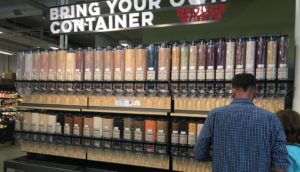
Source: phillymag.com
MOM’s Organic Market
There are a couple of locations in Philly offering bulk produce including grains, pasta, herbs, and much more. Additionally, they sell a range of zero-waste lifestyle products such as kitchen utensils and cleaning supplies. Another aspect that makes MOM’s a great zero-waste store in Philadelphia is that they also act as a recycling drop-off point for everything from batteries through cork to oyster shells.
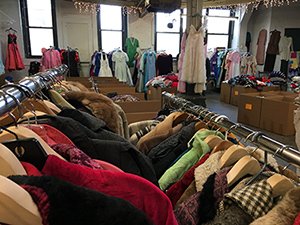
Source: bulkvintage.com
Bulk Vintage Warehouse
Zero waste in Philadelphia isn’t only about food, with the Bulk Vintage Warehouse offering second-hand clothing that allows retailers and individuals to cut down on waste. Aimed at vintage retailers, they sell online and in-store, with the latter exclusively for those buying wholesale.
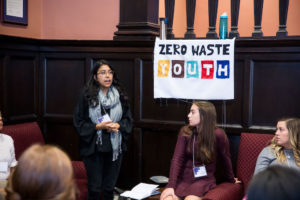
https://www.postlandfill.org/szw/ Source: postlandfill.org
The Student Zero Waste Conference in Philadelphia
Not to be outdone by businesses and local government, the students of Philly run an annual conference: Students for Zero Waste Conference. In 2019, the sixth year of the conference, more than 600 students, staff, industry players, activists, and others came from around the country to participate in workshops, training, activity sessions, and panels about waste and environmental justice. The 2021 conference will be run from October 11-13th with student-led workshops, professional training and education, activity sessions, affinity group meetups, and a range of panels covering topics related to waste and environmental justice.
These programs, enterprises, and initiatives are just the tip of the iceberg when it comes to zero waste in Philly, so check out cleanphl.org or phila.gov for more programs. Additionally, if you’re business is looking to improve its waste management practices in order to become part of the Zero Waste Partner program, or if you simply want to improve your sustainability metrics and work towards zero waste, subscribe to zerowaste.com today.
Finally, if your business is looking to embrace zero waste, chat with one of our TRUE Advisors to get more insights on how you can optimize your waste management operations to ensure nothing goes to landfill.

